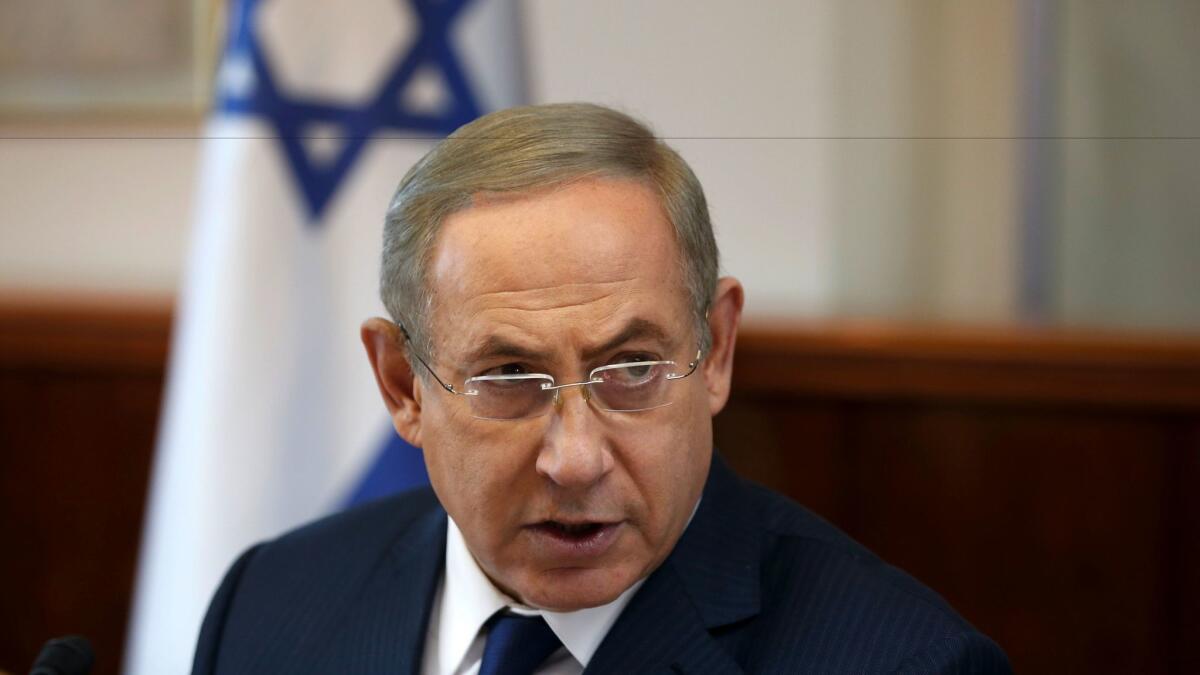Opinion: Israel isn’t the only Mideast nation trying the curtail the use of loudspeakers by mosques

Israeli Prime Minister Benjamin Netanyahu lent the measure his support for the first time Sunday.
- Share via
To the editor: As The Times notes, the muezzin’s chant, “broadcast over a loudspeaker from the mosque’s minaret, is a familiar sound throughout the Islamic world, from the giant mosques of Cairo, Istanbul and Baghdad to the smaller ones in towns and villages in every Arab country.” (“Israel’s ‘muezzin law’ would muffle the call to prayer,” editorial, Nov. 18)
Islamic countries are struggling with how to handle the noise generated by the loudspeakers five times a day. In Egypt, for example, authorities have unsuccessfully attempted to unify the timing and to restrict the call to prayer to only the largest mosques in order to reduce noise. A few years ago, then-Religious Endowments Minister Mahmoud Zakzouk maintained that loudspeakers undermine Islam and are an invention with no connection to Islamic law. Cairo, as well as some Saudi and European cities, currently impose decibel restrictions on the muezzin’s call.
Whatever one thinks of the controversial Israeli bill to ban the use of loudspeakers for the muezzin, it is disingenuous of The Times to ignore the fact that the issue goes beyond Israel.
Tamar Sternthal, Jerusalem
The writer is director of the Israel office of the Committee for Accuracy in Middle East Reporting in America.
..
To the editor: In the 21st century, why does a muezzin need to use a loudspeaker to recite the call to prayer for nearby Muslims? Doing this five times a day — and starting before dawn — may be appropriate in a theocracy, but not in religiously diverse countries.
How about sending texts to devout Muslims’ cellphones to convey those traditional calls to prayer? That would satisfy theological precepts while remaining a good neighbor, one who doesn’t inflict aural affronts on dozing infidels.
You know, do unto others as you would have them do unto you.
Gloria Martel, Los Angeles
Follow the Opinion section on Twitter @latimesopinion and Facebook
A cure for the common opinion
Get thought-provoking perspectives with our weekly newsletter.
You may occasionally receive promotional content from the Los Angeles Times.






